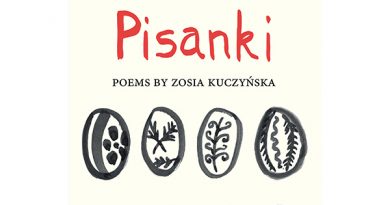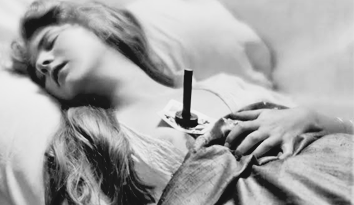Echolocation by Becky Cherriman
– Reviewed by Edward Ferrari –
Dr Teika Bellamy of Mother’s Milk Books has made some tremendously good design decisions with Becky Cherriman’s Echolocation: a minimalistic, but expertly composed cover image, and skilful use of two contrasting fonts, make this volume very attractive. It’s gratifying that an equal amount of attention must have been given to editing the poems and to their order in the book, thoroughly ignoring Larkin’s quip about throwing the rest up in the air after you’ve decided on your first and last.
The pamphlet focusses on motherhood, which will hardly come as a surprise for those familiar with the publisher. Cherriman is clearly drawing from a large body of work for this pamphlet, so the work rarely feels hemmed in by a lack of range, a fact that is bound to generate excitement for her full collection which will be released in November.
‘Eucharist’, the opening poem, gives a snapshot of the poet’s relationship with her own mother; it is both narrative and lyrical, which is typical of most poems in the book. Over three stanzas, the poem sets a tone of controlled emotion that will be repeated throughout. Cherriman presents a mother whose face is “pale as brume”, her hair “shedding like maths sheets from an open bag.” The obvious severity of illness is rendered much more apparent by the naivety of the similes. That the poem is not so much about loss itself, but the failure to realize the loss, and the potentially palliative role of memory in that realization, makes it all the more poignant. A message emphasised by the poem’s conjuring of the childhood game ‘Threes’, where both mother and daughter repeat “what we’d loved, and why.”
I come across other poems that on the face of it seem to stray too close to the sentimental, only to be reigned in at the last moment to articulate a much more moving point, or, on second reading, refract a new and much more complex aspect of a relationship.
‘Building Castles’, for instance, a poem ostensibly about a break up, builds and builds through remembered promises, “our house in the country, / you spidering on the piano, / me nurturing stories till dusk. […] I came to see it all as you did, / grafted my dreams onto yours”. This risks sentimentality, but tests my expectations through its original use of verbs. The man ‘spiders’ the piano, she ‘nurtures’ stories, and dreams are ‘grafted’. While not exactly violent, there is certainly enough foreshadowing to make the final line the true punch in the gut. Ultimately my expectations are trounced by the gritty writing.
There is also a lyrical bent in Cherriman’s writing that relishes the prominence of consonants in her Yorkshire dialect. I note the line in ‘Lullabies’, for instance (also noted by other reviewers), that reads: “They are the sisters of alchemists / grinding gold from colic and clock tick.” The twang to this, and the ear behind it, is testament to Cherriman’s experience and skill as a performer of her poetry; if you get chance to listen to her read, don’t miss out.
Despite the strengths of this pamphlet, there are places where I might roll my eyes. The undergraduate feel of “the saccharine pill of your wisdom” in ‘Cycle’ stands out as weak writing in a short book that can’t afford to show it. But on the whole, if you are looking to get acquainted with Cherriman’s memorable poems before the full collection arrives, then you can’t go wrong with Echolocation. It’s a beautiful and consistent book that packs a disproportionately large punch.





